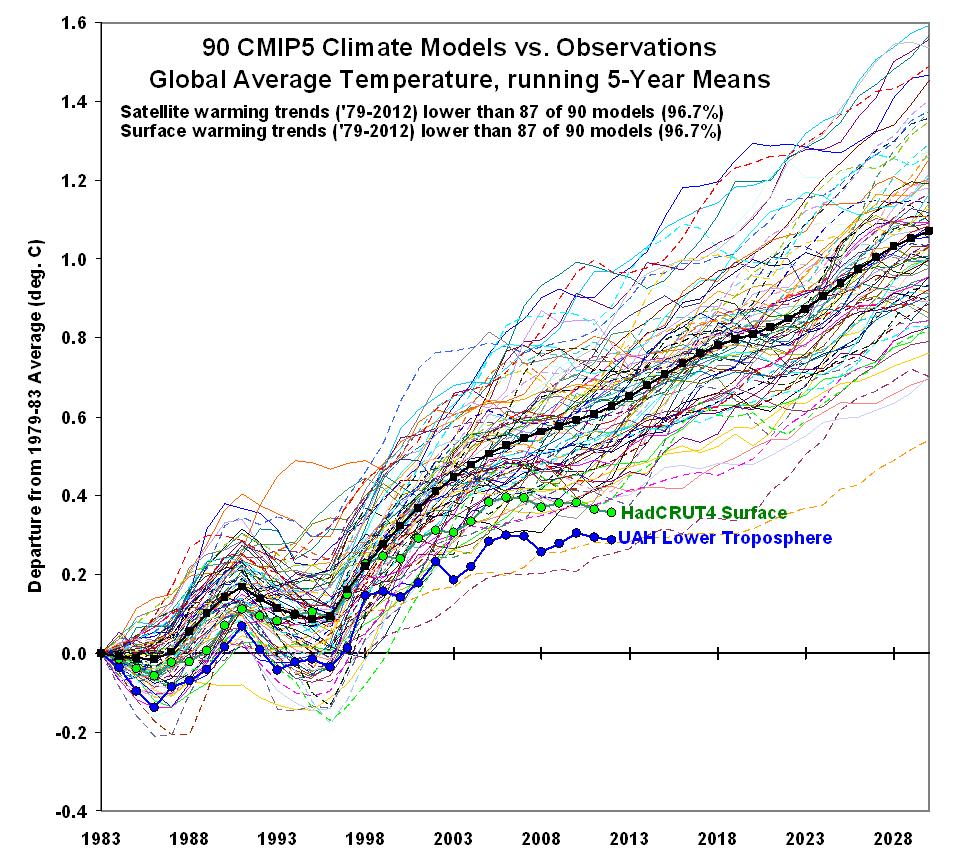The other problems you mentioned are hard to deny, because someone can see their effects directly, and see that they’re bad.
The problem with global warming is that nothing bad has happened yet. Yes, you can look at data and see about a few degrees Celsius warming over the past 100 years. But we’re still here, and everything still seems pretty normal. Some regions of the country are experiencing weather that’s different from the norm over the past 30-40 years, but that’s hardly surprising and impossible to prove that it’s the direct result of global warming.
Yes, we are told by scientists that global warming will be a problem. But, as a general rule, a climate skeptic does not have a lot of respect for scientists, particularly climate scientists, for one of three reasons:
-
They distrust science in general. Enough said on this one.
-
They realize that scientists are imperfect, and that climate science is a much less rigorous field than other sciences because you can’t really follow the scientific method re: your key conclusions. In most fields, particle physics say, you can form a hypothesis, make a prediction, perform an experiment to test your prediction, and then analyze the results and determine the validity of your hypothesis/theory.
This is the fundamental method through which all success in science is achieved. It is known, expected and perfectly okay in science that your hypotheses/theories will occasionally (perhaps most of the time) be incorrect - you discover that following your experiment, and then revise them until you are arrive at the correct result.
For the key result in climate science - that X% increase in CO2 will result in Y% increase in surface temperature - there is no way to test that hypothesis, no way to perform an experiment, other than to just wait and see.
Yes, you can perform experiments on a small scale, and test parts of your hypothesis, or aspects of your theory, but you can’t test your theories on the entire, enormously complicated climate system. You just have to wait and see if you were right or wrong.
The particle physicists at CERN did not announce the discovery of the Higgs Boson until they were 99.999% sure it was not a statistical anomaly. Climate scientists are nowhere near that level of certainty in their predictions. Their claim is not “We are absolutely, 99.999% scientifically certain we’re correct!”, it’s “Well, we’re pretty sure it might get really bad”, and when you’re asking people to give up or drastically cut back on the fundamental energy source of the modern industrial society, that’s not as convincing as it needs to be.
- The results from climate scientists’ models suggest that they lack predictive power.
Here is a plot comparing the observed surface and atmospheric temperature increase over the past 30 years, to the predictions made by about 90 climate models. You can see that most models over-predict the amount of warming.

Now, that does not mean warming will not occur. It simply means that the models are lacking accuracy in modeling some major unknown component of the climate system. The climate is very complicated, and it is impossible to predict what the models will predict when this inaccuracy is rectified.
(Additionally, many climate models involve “free parameters” that are not derived from first physical principles, but rather calibrated empirically from data gathered over the past 30 - 100 years in order to make models match the historical record)
Coupled with 2), climate skeptics would like to wait just a little longer to see if the scientists revise their theory before upending modern civilization.


